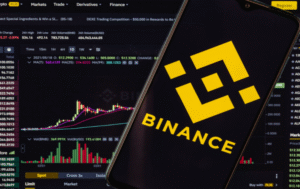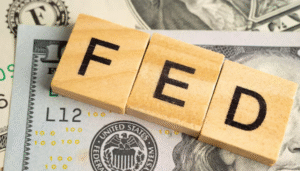$AAPL $GLD $BTC
#Trump #inflation #tariffs #tradewar #stocks #economy #trumpadministration #portfolioprotection #investing #silver #gold #riskmanagement
Astoria Portfolio Advisors CEO John Davi recently expressed concerns about the potential economic and financial impacts of President-elect Donald Trump’s proposed tariff agenda. In Davi’s view, these policies have the potential to be highly inflationary, which is why investors need to think strategically about how they can adjust their portfolios. Historically, tariffs have often led to disruptions in international trade, a decline in growth, and have propped up domestic prices because of reduced competition from foreign imports. The economic implications of these changes, especially if tariffs are aggressively enforced, are expected to ripple through different sectors, stressing some corporate profits while boosting others.
The key question for investors is how to safeguard their portfolios against the inflationary risks that could arise if tariffs impact import prices or supply chains for multinational companies. One possible beneficiary in an inflationary environment is commodities, particularly precious metals like gold ($GLD). Gold is traditionally viewed as a safe-haven asset that performs well when inflation is rising, as it helps maintain purchasing power. Investors may also look to high-quality, inflation-protected bonds or companies with significant pricing power, especially in industries less reliant on international supply chains.
Equity investors must also be selective, given that tariffs could hinder companies with large exposure to international markets, particularly those reliant on cheap foreign goods or manufacturing facilities located abroad. Sectors such as technology ($AAPL), which depend heavily on globalized supply chains, may be vulnerable. On the other hand, domestic manufacturers of goods ranging from steel to consumer products could see a temporary boost if they face less competition from foreign imports. However, it’s key to recognize that while some industries may benefit, a broader and prolonged trade war could ultimately hurt overall economic growth, driving down corporate earnings expectations market-wide.
As the risks tied to inflation rise, the new economic paradigm brought by Trump’s administration may also feed into broader uncertainty in markets. In such an uncertain climate, investors could increasingly turn to alternative and emerging assets like bitcoin ($BTC). Bitcoin, often considered a “digital gold,” has been increasingly popular as an asset that thrives in times of uncertainty or when traditional asset classes, like bonds and equities, appear particularly risky. Being decentralized, it’s immune to the tariff policies and inflationary forces tied to traditional fiat currencies that could impact sectors negatively under a protectionist trade regime. Diversifying into such assets could offer a broader hedge against varying forms of risk that might emerge as Trump’s economic policy unfolds.







Comments are closed.